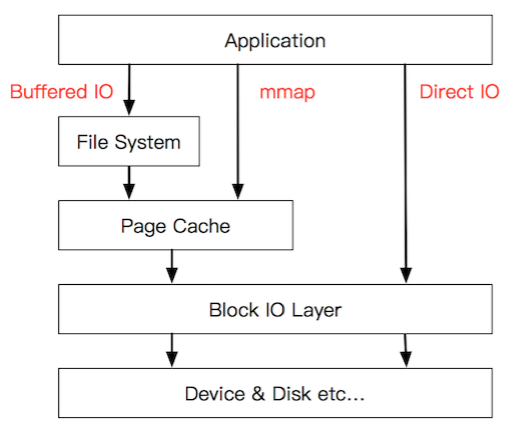[转载] DIRECT I/O
Direct I/O is a feature of the file system whereby file reads and writes go directly from the applications to the storage device, bypassing the operating system read and write caches. Direct I/O is used only by applications (such as databases) that manage their own caches.
An application invokes direct I/O by opening a file with the O_DIRECT flag. Alternatively, GFS can attach a direct I/O attribute to a file, in which case direct I/O is used regardless of how the file is opened.
When a file is opened with O_DIRECT, or when a GFS direct I/O attribute is attached to a file, all I/O operations must be done in block-size multiples of 512 bytes. The memory being read from or written to must also be 512-byte aligned.
Note
Performing I/O through a memory mapping and also via direct I/O to the same file at the same time may result in the direct I/O being failed with an I/O error. This occurs because the page invalidation required for the direct I/O can race with a page fault generated through the mapping. This is a problem only when the memory mapped I/O and the direct I/O are both performed on the same node as each other, and to the same file at the same point in time. A workaround is to use file locking to ensure that memory mapped (i.e., page faults) and direct I/O do not occur simultaneously on the same file.
The Oracle database, which is one of the main direct I/O using applications, does not memory map the files to which it uses direct I/O and thus is unaffected. In addition, writing to a file that is memory mapped will succeed, as expected, unless there are page faults in flight at that point in time. The mmap system call on its own is safe when direct I/O is in use.
One of the following methods can be used to enable direct I/O on a file:
O_DIRECT- GFS file attribute
- GFS directory attribute
4.9.1. O_DIRECT
If an application uses the O_DIRECT flag on an open() system call, direct I/O is used for the opened file.
To cause the O_DIRECT flag to be defined with recent glibc libraries, define _GNU_SOURCE at the beginning of a source file before any includes, or define it on the cc line when compiling.
